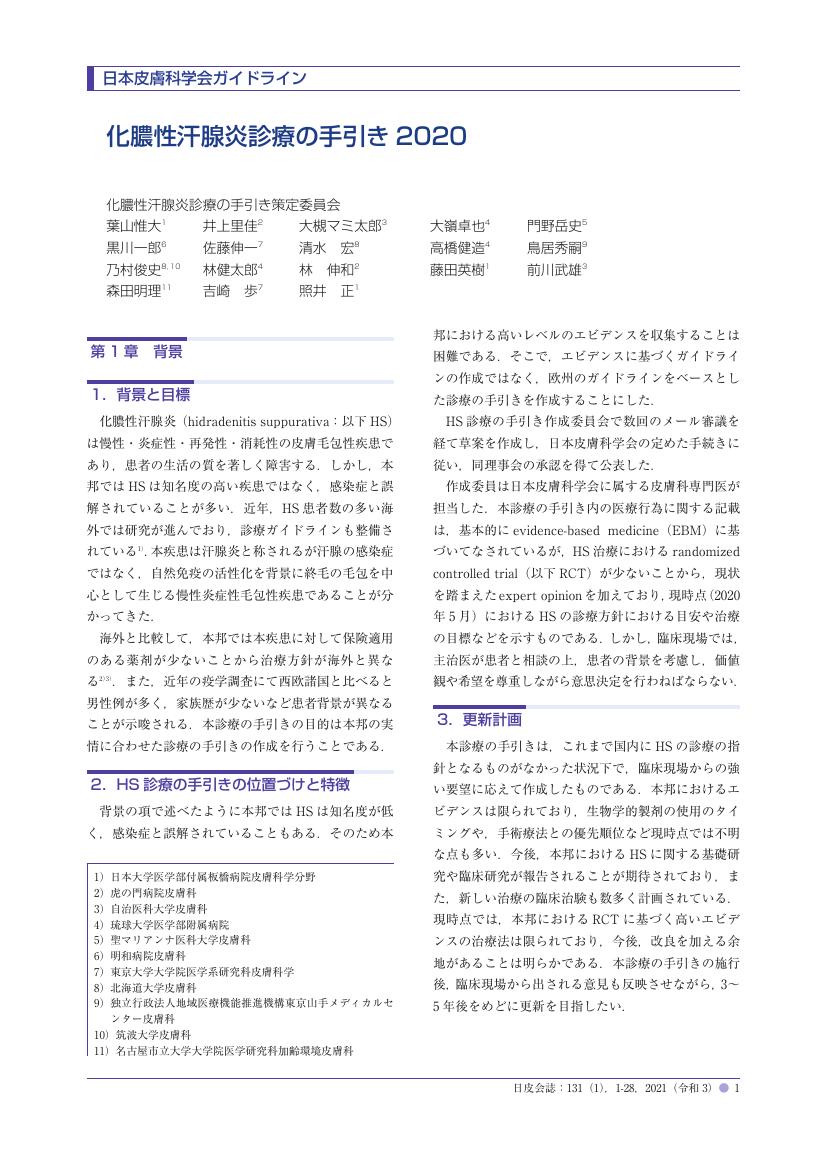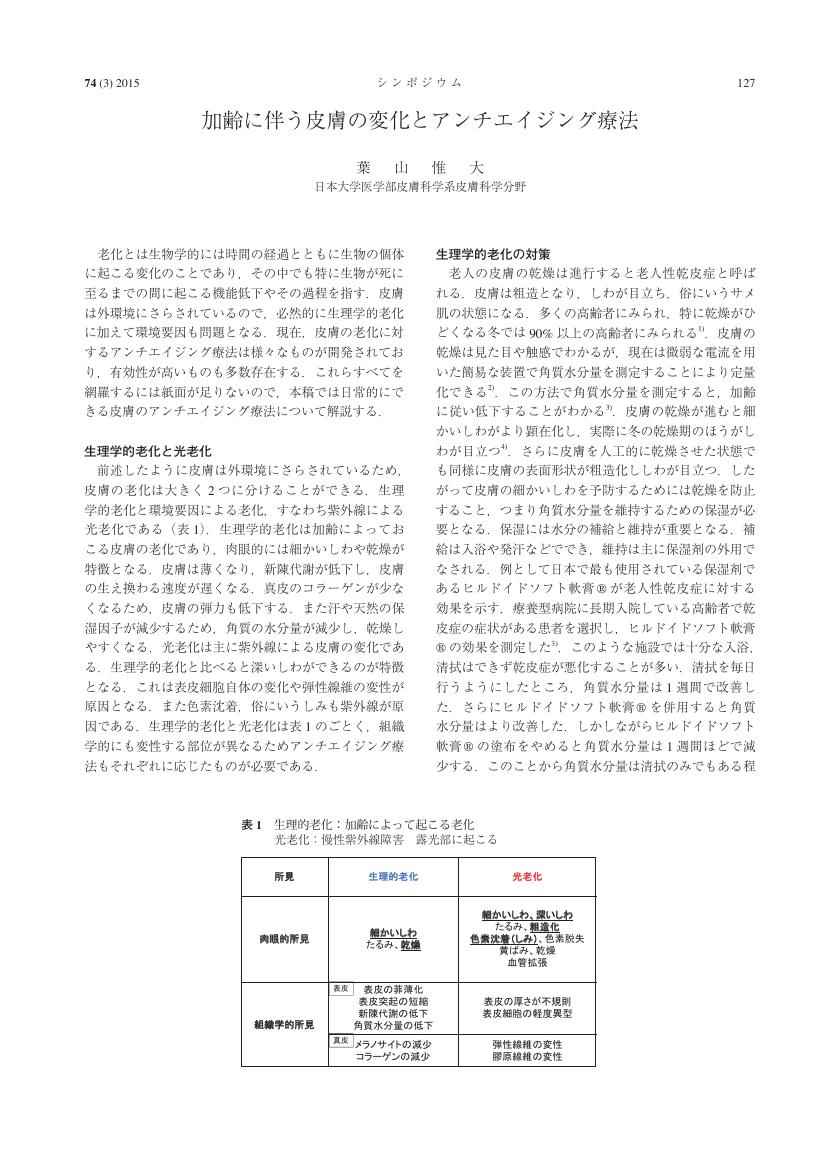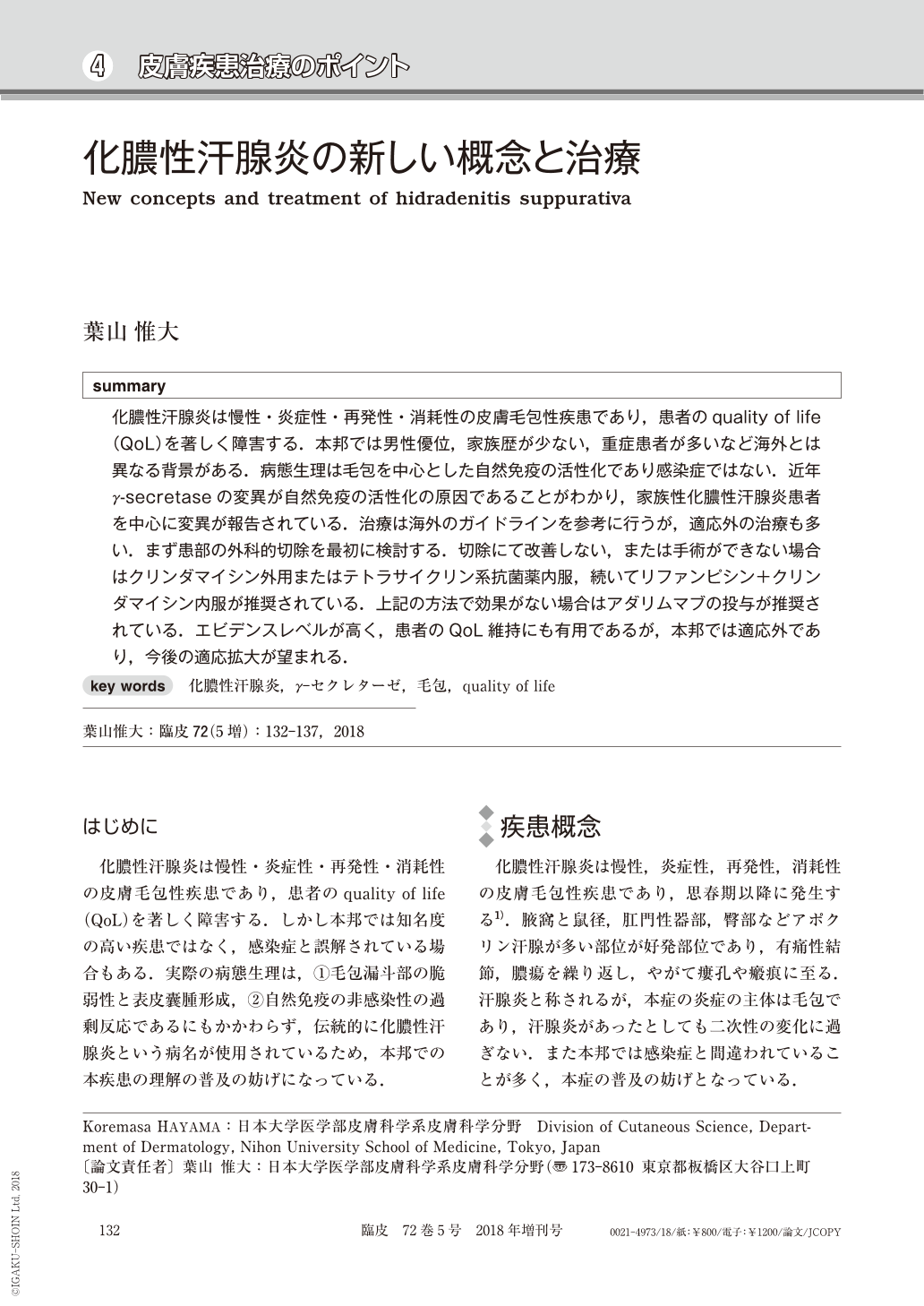23 0 0 0 OA ニボルマブの作用機序,効果,副作用と日本大学医学部附属板橋病院皮膚科での使用経
- 著者
- 伊崎 聡志 葉山 惟大 照井 正
- 出版者
- 日本大学医学会
- 雑誌
- 日大医学雑誌 (ISSN:00290424)
- 巻号頁・発行日
- vol.75, no.4, pp.156-160, 2016-08-01 (Released:2016-09-16)
- 参考文献数
- 18
Malignant melanomas easily metastasize and are often resistant to conventional classical therapies, i.e., surgery, chemotherapy and radiotherapy, in patients with advanced/metastatic malignant melanoma. In recent years, rapid advances have been made in the immunotherapy of malignant melanoma. New medicines, which have been approved by Federal Drug Administration (FDA), have dramatically improved the clinical outcomes for patients with advanced/metastatic melanoma. Nivolumab is an immune checkpoint inhibitor that targets programmed cell death-1 (PD-1) receptors. PD-1 is expressed on many immune cells, including T cells, B cells and natural killer cells. Engagement of PD-1 with its ligands (PD-L1 and PD-L2) induces functional exhaustion of the cytotoxic immune response. Nivolumab inhibits the PD-1 pathway, and thus activates the cytotoxic immune response. Although the immune checkpoint inhibitor tends to take a few months until it exhibits efficacy, once established, the efficacy often lasts for a long time. However, immune checkpoint inhibitors can have many adverse effects, including autoimmune-related inflammation. In particular, relevant severe adverse effects include interstitial pneumonia, colitis, liver dysfunction, thyroid disorders, and infusion reaction. Other affected organs include the skin, eyes, kidneys and nerves. Furthermore, several cases of fulminant type 1 diabetes mellitus have been reported in 2015 and 2016. Because we cannot predict what kinds of adverse effects will occur or when they will occur, we must observe patients carefully in order to detect any adverse events early on, and initiate appropriate treatments. The development of a number of new therapies will provide benefits for patients with malignant melanoma. Dermatologists must use these new drugs appropriately after determining the correct diagnostic information and providing supporting evidence.
2 0 0 0 OA 掌蹠膿疱症診療の手引き2022
- 著者
- 日本皮膚科学会掌蹠膿疱症診療の手引き策定委員会 照井 正 小林 里実 山本 俊幸 大久保 ゆかり 阿部 名美子 井汲 菜摘 石井 まどか 伊藤 明子 梅澤 慶紀 金蔵 拓郎 川上 洋 岸部 麻里 黒木 香奈 車谷 紋乃 河野 通良 清水 忠道 辻 成佳 十一 英子 中村 元樹 西田 絵美 葉山 惟大 平野 宏文 藤澤 大輔 藤城 幹山 藤田 英樹 松本 由香 森田 明理 村上 正基
- 出版者
- 公益社団法人 日本皮膚科学会
- 雑誌
- 日本皮膚科学会雑誌 (ISSN:0021499X)
- 巻号頁・発行日
- vol.132, no.9, pp.2055-2113, 2022-08-20 (Released:2022-08-23)
- 参考文献数
- 384
1 0 0 0 OA 化膿性汗腺炎診療の手引き2020
1 0 0 0 化膿性汗腺炎診療の手引き2020
1 0 0 0 OA たかが蕁麻疹,されど蕁麻疹
- 著者
- 葉山 惟大
- 出版者
- 日本大学医学会
- 雑誌
- 日大医学雑誌 (ISSN:00290424)
- 巻号頁・発行日
- vol.77, no.3, pp.201-202, 2018-06-01 (Released:2018-07-23)
- 参考文献数
- 13
1 0 0 0 OA 加齢に伴う皮膚の変化とアンチエイジング療法
- 著者
- 葉山 惟大
- 出版者
- 日本大学医学会
- 雑誌
- 日大医学雑誌 (ISSN:00290424)
- 巻号頁・発行日
- vol.74, no.3, pp.127-128, 2015-06-01 (Released:2016-01-25)
- 参考文献数
- 12
1 0 0 0 化膿性汗腺炎の新しい概念と治療
- 著者
- 葉山 惟大
- 出版者
- 医学書院
- 雑誌
- 臨床皮膚科 (ISSN:00214973)
- 巻号頁・発行日
- vol.72, no.5, pp.132-137, 2018-04-10
summary化膿性汗腺炎は慢性・炎症性・再発性・消耗性の皮膚毛包性疾患であり,患者のquality of life(QoL)を著しく障害する.本邦では男性優位,家族歴が少ない,重症患者が多いなど海外とは異なる背景がある.病態生理は毛包を中心とした自然免疫の活性化であり感染症ではない.近年γ-secretaseの変異が自然免疫の活性化の原因であることがわかり,家族性化膿性汗腺炎患者を中心に変異が報告されている.治療は海外のガイドラインを参考に行うが,適応外の治療も多い.まず患部の外科的切除を最初に検討する.切除にて改善しない,または手術ができない場合はクリンダマイシン外用またはテトラサイクリン系抗菌薬内服,続いてリファンピシン+クリンダマイシン内服が推奨されている.上記の方法で効果がない場合はアダリムマブの投与が推奨されている.エビデンスレベルが高く,患者のQoL維持にも有用であるが,本邦では適応外であり,今後の適応拡大が望まれる.



